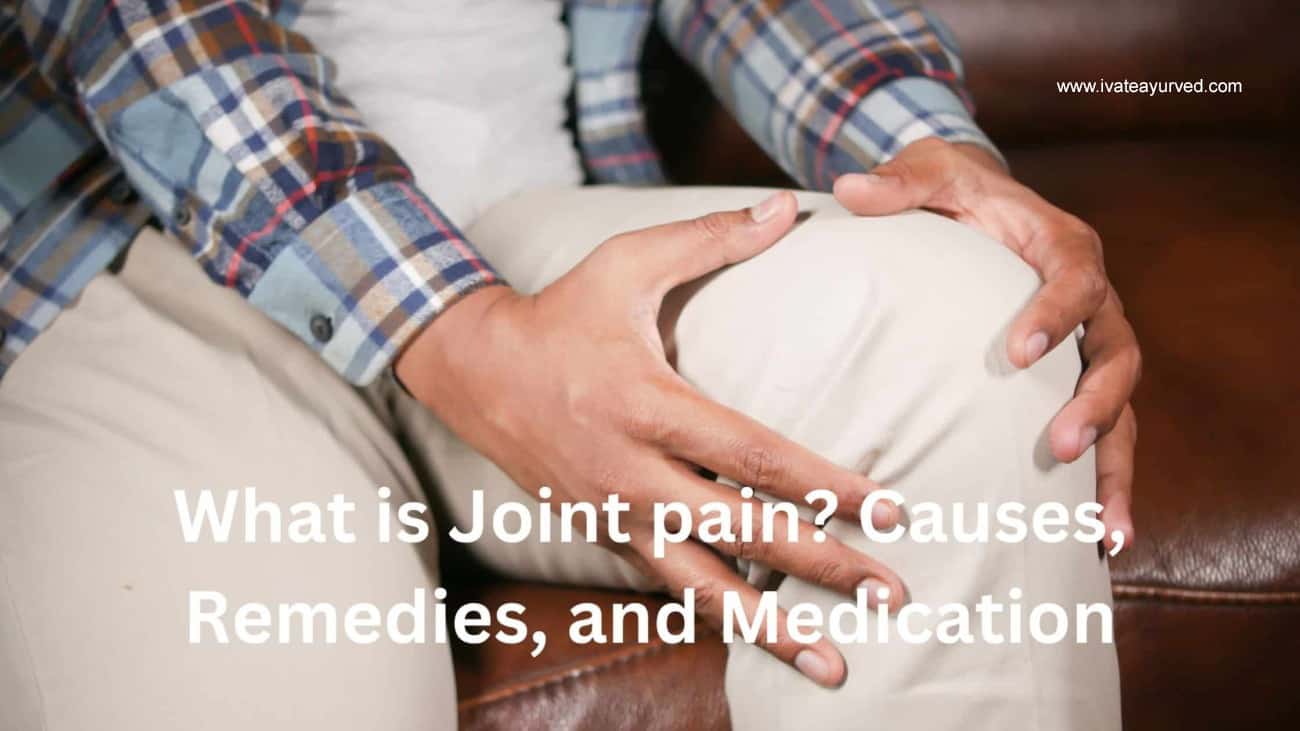What is Joint pain? Causes, Remedies, and Medication
What is Joint Pain?
Joint Pain is discomfort, soreness, or ache in one or more joints. It can be caused by various factors such as injury, inflammation, arthritis, and infection, among others. The pain can range from mild to severe and can be accompanied by other symptoms such as swelling, stiffness, and difficulty moving the affected joint.
Joint pain is common. It can be felt in the hands and feet, hips, knees, or spine. It can be constant, or it may change from one day to the next. Sometimes, the joint may feel stiff, achy, or sore. Patients may complain of a burning sensation, throbbing or “grating” sensation. The joint might feel stiff at first, but it will become more flexible and comfortable with activity and movement. Too much activity can make the pain worse.
Joint pain can affect the function of the joints and limit one’s ability to do basic tasks. A severe case of joint pain can impact your quality of life. The treatment should not be limited to pain, but also address the affected activities or functions.
Who is more likely to experience joint pain?
- Anyone can experience joint pain, however, it is more common in certain groups of people such as:
- Older adults, as the wear and tear of joints, increases with age.
- People who have a family history of joint problems, such as osteoarthritis.
- Individuals who are overweight or obese, as the extra weight puts pressure on the joints.
- Athletes, due to the repetitive stress on their joints from physical activity.
- People with certain medical conditions, such as rheumatoid arthritis, gout, and lupus.
It’s important to note that joint pain can affect people of all ages and can be caused by a wide range of factors.
What causes joint pain?
Joint pain can be caused by a variety of factors, including:
- Arthritis: Inflammation of the joints that can lead to pain, stiffness, and swelling. There are various types of arthritis, including osteoarthritis, rheumatoid arthritis, gout, and lupus.
- Injury: Joint pain can be caused by a traumatic injury, such as a sprained ankle, torn ligament, or broken bone.
- Bursitis and Tendinitis: Inflammation of the bursae (small fluid-filled sacs near the joints) or tendons (tissues that connect muscle to bone) can cause joint pain.
- Infections: Joint pain can be caused by infections, such as septic arthritis or Lyme disease.
- Overuse: Repetitive motions, such as typing or running, can lead to joint pain due to overuse.
- Medical conditions: Certain medical conditions, such as fibromyalgia, can cause joint pain.
- Others: Joint pain can also be caused by autoimmune diseases, gout, and bone spurs, among other factors.
What can be done to relieve joint pain?
Treatment for joint pain varies depending on the underlying cause, but some common methods of relief include:
- Medications: Over-the-counter pain relievers, such as joint pain reliever tablets, can help relieve joint pain. In some cases, prescription medications may be necessary to control inflammation and manage pain.
- Exercise: Gentle exercises, such as walking or swimming, can help improve joint mobility and reduce pain. Strengthening exercises for the muscles around the affected joint can also be beneficial.
- Hot and Cold Therapy: Applying heat or ice to the affected joint can help relieve pain and reduce inflammation.
- Weight Management: Losing weight can reduce the stress on weight-bearing joints and help relieve pain.
- Physical therapy: A physical therapist can design an exercise program to help improve joint function and relieve pain.
- Assistive Devices: Using crutches, canes, or other assistive devices can help reduce stress on the affected joint and relieve pain.
- Alternative treatments: Some people find relief from joint pain through alternative treatments such as acupuncture, massage, and herbal remedies.
It’s important to talk to your doctor before trying any new treatments, to ensure that they are safe and appropriate for your individual needs.
When should I see a doctor?
You should see a doctor if you experience the following symptoms:
- Persistent joint pain that lasts for more than a few days
- Swelling or redness in the affected joint
- Limited range of motion or difficulty moving the joint
- A sudden or severe increase in joint pain
- A joint that appears deformed or misshapen
- A joint that feels warm to the touch
- Joint pain accompanied by a fever
These symptoms can be indicative of a more serious underlying condition, such as an infection or inflammatory arthritis, and prompt medical attention is necessary. Early diagnosis and treatment can help prevent further damage and improve outcomes.
iVate Ayurveda Ortho Care Capsules
iVate Ayurveda Ortho Care Capsules are dietary supplements that may help provide joint support and improve joint health. The ingredients in Ortho Care Capsules include glucosamine, chondroitin, MSM, and turmeric. These ingredients may help reduce inflammation and pain, improve joint mobility, and protect against further damage. It’s important to note that the efficacy of these supplements for joint health is still being studied and more research is needed to fully understand their effects.





Kriti Verma
Can I just say what a relief to discover a person that really understands what they’re discussing online. You definitely realize how to bring a problem to light and make it important. More and more people should check this out and understand this side of your story. It’s surprising you aren’t more popular since you definitely have the gift.
July 18, 2023 at 9:54 pm
Can We Eat Curd During Periods Or Menstrual Cycle? Benefits
[…] Adding curd to your diet can help you in various ways as it has many nutrients, such as protein and calcium, that strengthen your bone structure and reduce joint pain. […]
September 9, 2023 at 4:04 pm